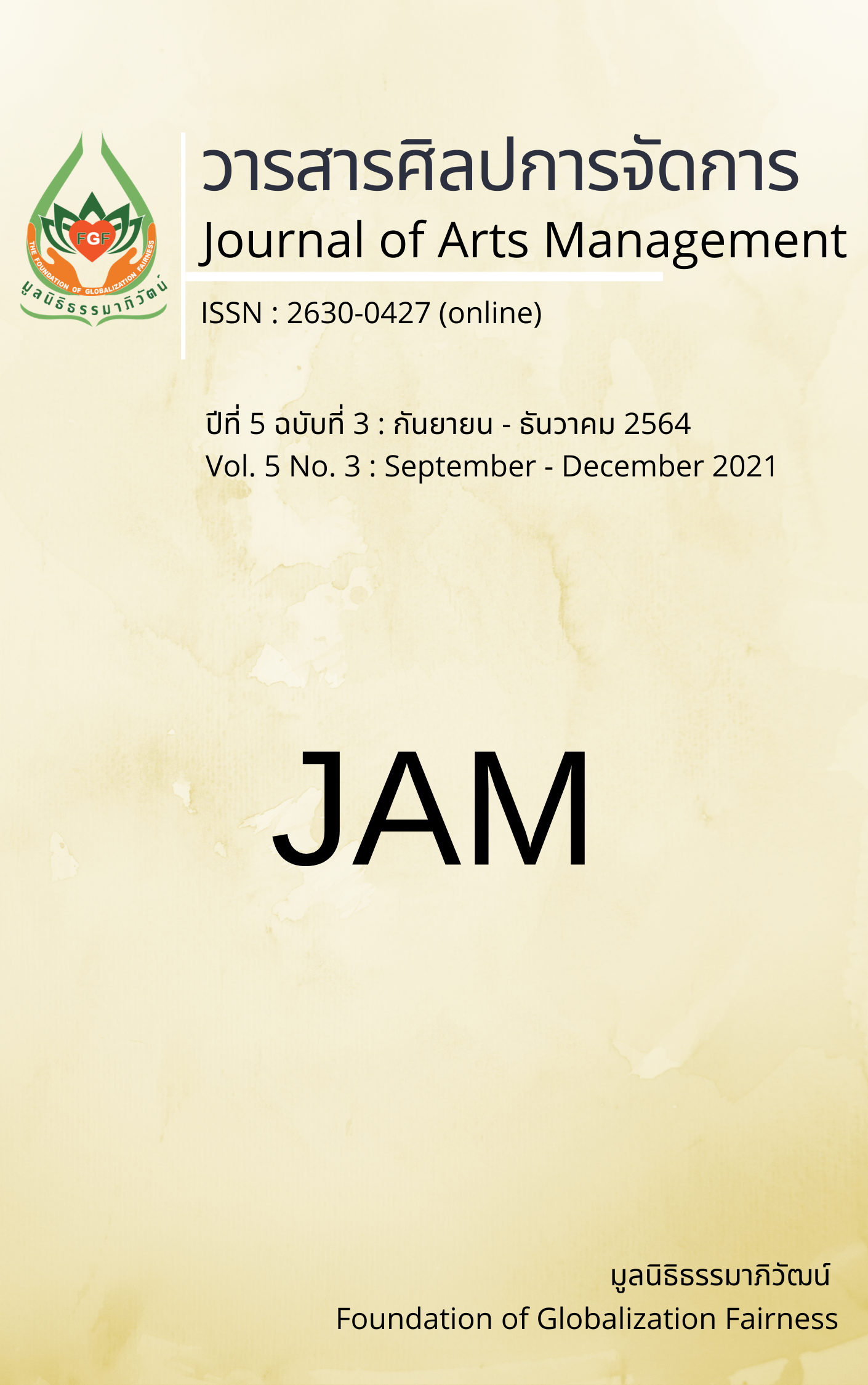Statistical Forecasting Models of Recyclable Waste Management
Main Article Content
Abstract
This research aims to study the data collection and forecasting in the recycle wastes of the 2 green schools are Prachaniwet school and Sainamtip school, from 2018 to 2020 through these 3 years. The large Prachaniwet school under Bangkok Metropolitan Administration (BMA) and the large Sainamtip school under the Ministry of Education that had engaged in the project of the green school located in Bangkok city. The recycled wastes in 4 categories as recycling plastic, recycling glass, recycling paper, and recycling can compare between Prachaniwet school and Sainamtip school in a range of 6 months. The statistical analysis from the data collection with 4 forecasting technics are moving average, Weight moving average, Simple exponential smoothing, Holt’s exponential smoothing. The recycling waste from both Prachaniwet school and Sainamtip school in 4 categories in a range of 6 months from 2018 to 2020. The most recycling waste is plastic, which has a seasonal effect due to semester start. The comparison in 4 categories between Prachaniwet school and Sainamtip school. Sainamtip school seems to have recycling plastic waste, recycling glass waste, and recycling can waste more than Prachaniwet school. In recycling paper waste, Prachaniwet school seems to have more than Sainamtip school. The research result benefits from the forecasting techniques of this research with the Moving average, the Weight moving average, the simple exponential smoothing, the Holt’s exponential smoothing can be used to prepare for what will happen in the future, gain valuable insight, and thee result from prediction methods could decrease cost for the environmental management on the green schools on the recycle waste.
Article Details
Views and opinions appearing in articles in the Journal of Arts of Management It is the responsibility of the author of the article. and does not constitute the view and responsibility of the editorial team I agree that the article is copyright of the Arts and Management Journal.
References
Billah, B., King, M. L., Snyder, R. D., & Koehler, A. B. (1985). Exponential smoothing model selection for forecasting. International Journal of Forecasting, 22(2), 239-247. DOI:10.1016/j.ijforecast.2005.08.002
Brown, R.G. (1963). Smoothing, Forecasting and Prediction of Discrete Time Series. Prentice-Hall.
Holt, C. C. (1957). Forecasting Seasonals and Trends by Exponentially Weighted Moving Averages. ONR Memorandum, Vol. 52, Carnegie Institute of Technology, University of Texas, Austin.
Kabirifar, K., Mojtahedi, M., Wang, C., & Tam, V. (2020). Construction and demolition waste management contributing factors coupled with reduce, reuse, and recycle strategies for effective waste management: A review. Journal of Cleaner Production, 253. https://doi.org/10.1016/j.jclepro.2020.121265
Kalamdhad, A. S., Singh. J., & Dhamodharan, K. (2019). Advances in Waste Management: Select Proceedings of Recycle 2016. Springer.
Nabavi-Pelesaraei, A., & Bayat, R., Hosseinzadeh-Bandbafha, H., Afrasyabi, H., & Berrada, A. (2017). Prognostication of energy use and environmental impacts for recycle system of municipal solid waste management. Journal of Cleaner Production, 154, 602-613. https://doi.org/10.1016/j.jclepro.2017.04.033
Seabold, S., & Perktold, J. (2010). Statsmodels: Econometric and statistical modeling with python. In 9th Python in Science Conference, 92-96. DOI: 10.25080/Majora-92bf1922-011
Thibuy, K., Thokrairak, S., & Jitngemmadan, P. (2020). Holistic Solution Design and Implementation for Smart City Recycle Waste Management Case Study: Saensuk City. In 5th International Conference on Information Technology (233-237).
Yu, H., Zhang, Y., Li, D., Montenegro-Marin, C. E., & Kumar, P. M. (2021). Environmental planning based on reduce, reuse, recycle and recover using artificial intelligence. Environmental Impact Assessment Review, 86. DOI:10.1016/j.eiar.2020.106492


